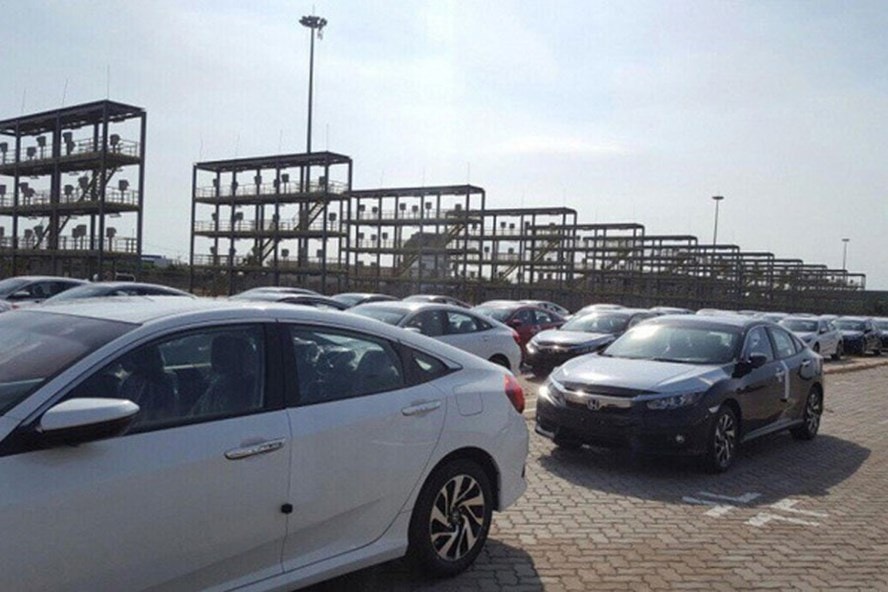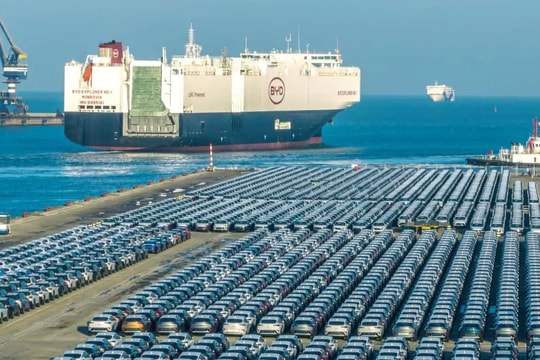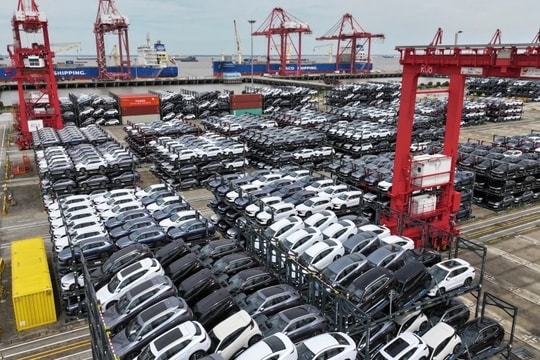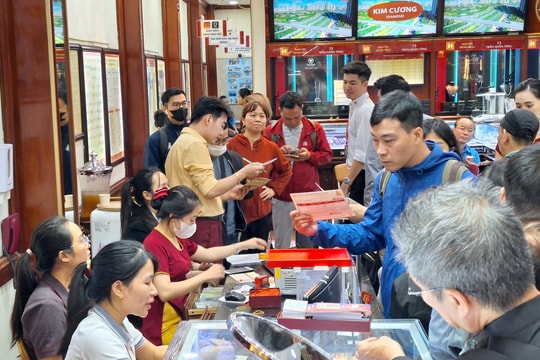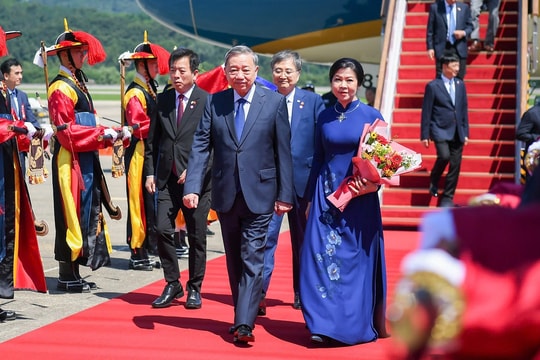Massive import of cars into the country: Car prices will decrease by 15 - 20%?
In just the first week of March, more than 2,000 imported cars were brought into the country with a value of 44.42 million USD. Commenting on the imported car market, the leader of the Department of Registration, Ministry of Transport said that in the past time, "supply was not lacking" but some distribution units "deliberately called to create an audience" before Tet and now started to rush to bring cars into the country.
Honda's near completion of procedures for a batch of nearly 2,000 imported vehicles of all types is also expected to contribute to reducing vehicle prices across the market.
Importers "complain a lot but do nothing"
Mr. Dang Viet Ha - Deputy Director of the Vietnam Register said that many vehicle importers have submitted inspection registrations for imported vehicles, of which Honda Vietnam alone has almost completed the inspection procedures. Commenting on the story of the shortage of imported vehicles in the first two months of the year, Mr. Ha affirmed that there are no problems in implementing the regulations of Decree 116 and the time for businesses to conduct inspection is not long.
However, instead of completing the registration procedures, many units "did nothing but complain", causing some pressure on the authorities because "enterprises asked a lot but did not implement". Mr. Ha also said that the move of some car companies sending letters and official dispatches to the Ministry of Transport and the Department of Science and Technology to ask about the type approval certificate (VTA) was unnecessary because the circular had specific instructions and prolonged the time.
However, the leader of the Registry Department commented that although the number of imported cars in the first two months of the year was very low (only 31 cars with less than 9 seats), the market did not lack supply because "they imported a lot of cars from last year and there were enough to sell" and "they just kept selling slowly, not because they had no goods to sell, they just did not want to sell at low prices, so they created an audience".
|
| Thousands of imported cars arrived at the port in the first week of March. |
It is known that in addition to Honda and Ford, Toyota has also submitted registration documents for inspection of imported cars from Thailand, Japan, and the US.
According to Mr. Tran Quang Ha - Deputy Director of the Department of Science and Technology, Ministry of Transport, the reason why enterprises send VTA papers to the ministry is to consult to make sure whether it is in accordance with the regulations or not before submitting to the Registration Department and currently the department has consulted Honda, Toyota, Ford imported from the US and Thailand, Mazda, BMW, Mini, imported from different markets. According to the regulations, imported vehicles at the port can temporarily release the goods to the enterprise's staging area and then complete the registration and inspection procedures. After the results confirm that the vehicle is of guaranteed quality, it will return to customs for clearance.
According to information from the Hiep Phuoc Port Customs Branch, Honda has completed tax payment and brought all over 1,000 cars back for storage, waiting for inspection results. At the same time, the Customs agency has accepted the tax declaration price of Honda Company, with the total tax for the batch of 1,054 cars being over 253.5 billion VND.
This is the first unit to import a batch of cars from ASEAN, enjoying a preferential import tax rate of 0%, since the beginning of 2018 until now, while other batches of imported cars waiting at the port have not yet opened customs declarations. Previously, through many channels, a number of car joint ventures continuously reacted to Decree 116 and said that the new regulations created barriers to importing cars into the country.
Honda cars are discounted 15%, will other car prices follow?
Although the car is still at the port and has not yet completed customs clearance, Honda cleverly announced the price early to "keep its position" with a reduction of about 15% compared to the previous price. For example, the new price of the Honda CR-V ranges from 958 million VND to 1.068 billion VND, a reduction of nearly 200 million VND compared to the price announced in January, right before Tet, equivalent to a reduction of about 15%.
This move immediately caused the market to freeze, many customers stopped buying cars, waiting for the Honda batch as well as waiting for other imported car models to reduce prices according to the new tax.
According to Mr. L - an employee of a Ford dealership in Hanoi, the number of customers coming to inquire about cars is quite stable but "mostly asking and very few buying", many people ask when the 0% tax cars will arrive and how much the price will be reduced. According to Mr. Son - manager at Honda My Dinh dealership - right after Honda announced the lower price of new imported cars, this dealership has had more than 200 orders and is now starting to sell traffic cars in August, of which the CR-V model is the best seller.
Commenting on market developments, Mr. Pham Anh Tuan - Head of the policy subcommittee of the Vietnam Automobile Manufacturers Association (VAMA) - said that after clearing the paperwork issues, the price of imported cars from ASEAN will of course decrease a lot because enjoying 0% import tax helps reduce car prices from the root and Honda's 15% lower price has shown this.
Mr. Tuan believes that Honda's acceptance of an average tax price of only 480 million VND/vehicle could help this joint venture lower the price even further, but it will be difficult for this joint venture to take the risk because it has to mobilize a huge financial resource to bring such a large batch of vehicles into the country at once.
Sharing the same opinion, another expert in the industry commented that for many reasons, Honda was forced to mobilize a large amount of capital to bring the cars back, but the market is in shortage, so this batch of cars, if completed, will "sell quickly". However, other units will not be as favorable because when they bring cars back to supply the market, demand has more or less decreased and "they will be under pressure to reduce car prices to attract customers". Similarly, domestic car companies may also have to add incentives to compete for market share with imported cars.
In fact, statistics from the Vietnam Automobile Manufacturers Association (VAMA) also show that domestic car sales in February 2018 decreased by 53%, and domestically assembled car production also decreased by 48%. Passenger car sales decreased by more than 53%, and commercial vehicles also recorded a decrease of 55% compared to January 2018. The market decline caused domestic assembly and manufacturing enterprises to reduce the import of spare parts for the automobile industry.
According to statistics from the General Department of Customs, in February 2018, automobile businesses spent more than 204 million USD importing components into the country, down more than 12% compared to the previous month. In the first two months of the year, businesses only spent more than 436 million USD importing components, down 15% compared to the same period last year.
The reason is said to be because car consumption demand has passed its peak season and customers are waiting for tax-free cars.

